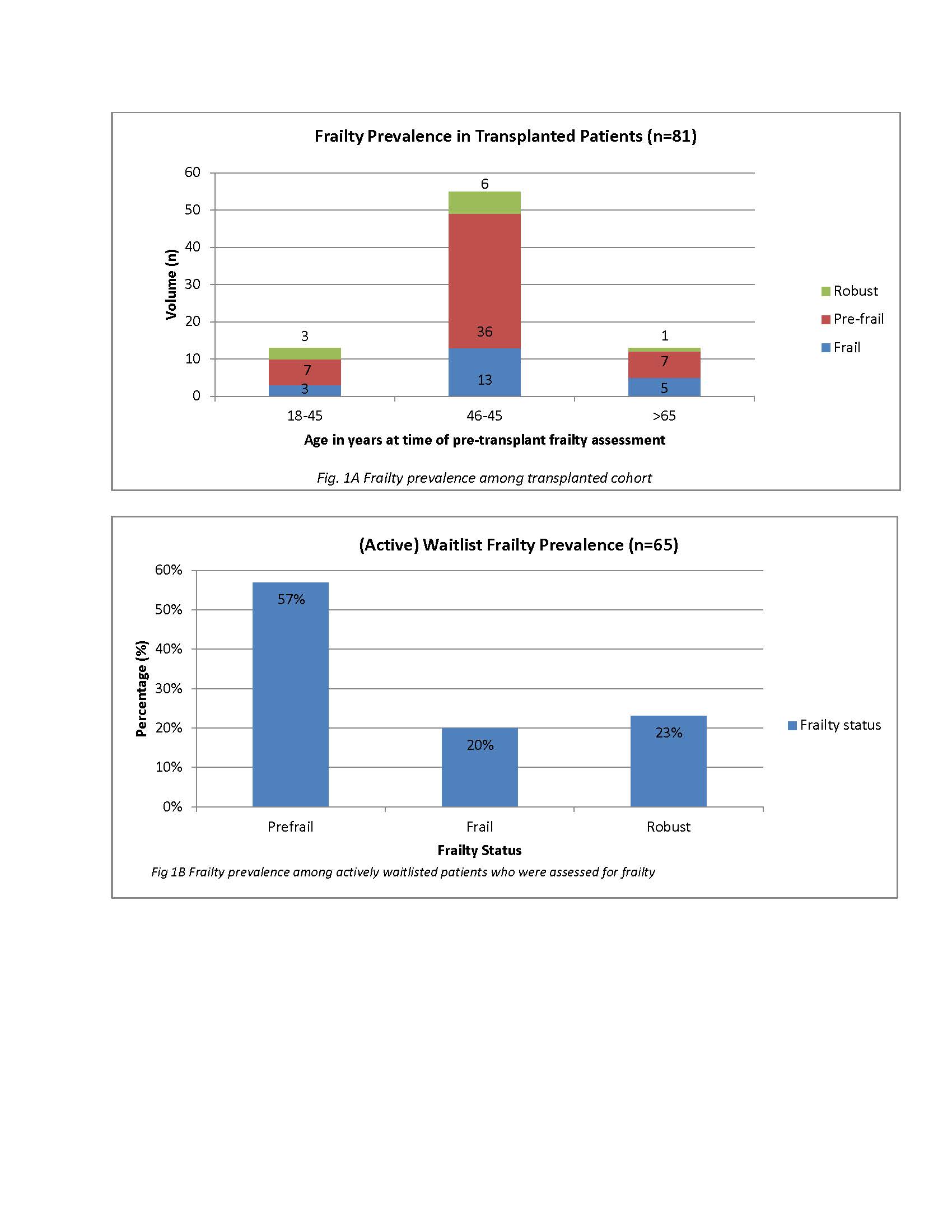Frailty Assessment in Patients Undergoing Liver Transplant Evaluation: A Large Single Center Experience
The Liver Institute at Methodist Dallas, Dallas, TX
Meeting: 2020 American Transplant Congress
Abstract number: D-138
Keywords: Liver transplantation, Outcome, Quality of life, Risk factors
Session Information
Session Name: Poster Session D: Liver: Recipient Selection
Session Type: Poster Session
Date: Saturday, May 30, 2020
Session Time: 3:15pm-4:00pm
 Presentation Time: 3:30pm-4:00pm
Presentation Time: 3:30pm-4:00pm
Location: Virtual
*Purpose: Frailty is a multi-component syndrome characterized by reduced physiologic reserve and functional decline. It is an independent predictor of poor post-transplant outcomes, including prolonged length of stay, early readmission, morbidity, and mortality. By assessing frailty prior to transplant, we can optimize the nutritional status and physical functionality of those candidates at risk for suboptimal post-transplant outcomes. The objectives of this study are to assess the feasibility of frailty testing as part of evaluating transplant candidacy and to study its impact on patient outcomes(ongoing study)
*Methods: Candidates undergoing liver transplant evaluation at a single transplant center were assessed for frailty using a previously validated tool, the Functional Assessment in Liver Transplantation (FrAILT©), developed by the University of California San Francisco. Liver Frailty Index (LFI) scores ≤3.2 were defined as robust, 3.3-4.4 pre-frail, and ≥4.5 frail. Pre-frail and frail candidates were referred to Physical/Occupational Therapy. Descriptive statistical analysis was conducted using SAS.
*Results: 325 candidates were included in the analysis. The median MELD score at the time of assessment was 14 and median LFI was 3.9. Frailty prevalence was distributed as follows: 31% frail, 56% pre-frail, and 13% robust. 25% of the tested patients underwent transplant, including 9 combined liver and kidney transplants. Of these, 62%, 26% and 12% tested pre-frail, frail and robust, respectively (Fig 1A). The median LOS was 9, with no difference by frailty status. 4 patients were re-transplanted, all of whom tested pre-frail. 65 patients were actively listed and the waitlist frailty prevalence was 57% pre-frail, 20% frail, and 23% robust (Fig 1B)
*Conclusions: Frailty assessment is crucial in the care of transplant candidates and can be a useful waitlist management tool. Incorporation in transplant evaluation aids in identifying candidates who may need prehabilitation. Early intervention could potentially improve quality of life, decrease waitlist mortality and morbidity, and enhance post-transplant outcomes.
To cite this abstract in AMA style:
Oduor H, Mantry P, Lesch L, Alford M, Pickle M, Barnes M, Habib A, Mehta A, Mejia A, Nazario H, Pagadala M, Puri V, Vahora Z, Weinstein J. Frailty Assessment in Patients Undergoing Liver Transplant Evaluation: A Large Single Center Experience [abstract]. Am J Transplant. 2020; 20 (suppl 3). https://atcmeetingabstracts.com/abstract/frailty-assessment-in-patients-undergoing-liver-transplant-evaluation-a-large-single-center-experience/. Accessed February 22, 2026.« Back to 2020 American Transplant Congress


